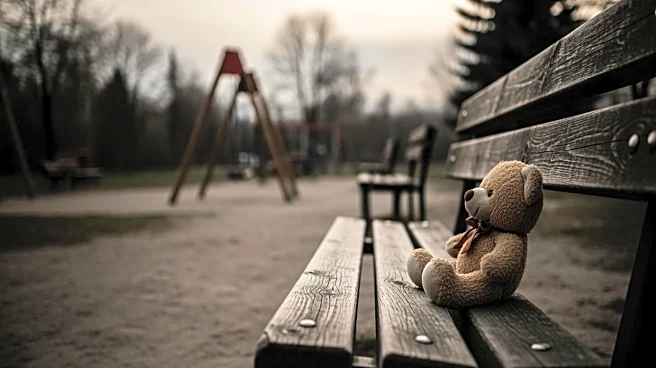What's Happening?
Child poverty in the UK has reached record levels, with one-third of children living in relative poverty. This increase is attributed to austerity measures implemented by the Conservative government from
2010 to 2024, which reduced public spending and weakened social security systems. Policies such as the two-child benefit cap have significantly contributed to the rise in child poverty, particularly affecting large families. Charities like Little Village are stepping in to provide essential supplies to families in need, highlighting the inadequacy of the benefits system.
Why It's Important?
The rise in child poverty in the UK reflects broader economic inequalities and the impact of austerity policies. It underscores the challenges faced by families in meeting basic needs and the strain on public services. This issue has significant implications for social stability and economic growth, as poverty affects children's development and future opportunities. Addressing child poverty requires comprehensive policy reform to strengthen social security systems and ensure access to essential services.
What's Next?
The current Labour government has pledged to address child poverty, investing in children's development and extending free school meals. However, balancing these initiatives with limited funds and a commitment not to increase taxes poses challenges. The upcoming budget is expected to address the two-child benefit cap, a key factor in rising poverty rates. The government's ability to implement effective policies will be crucial in reversing the trend of increasing child poverty.
Beyond the Headlines
Child poverty in the UK highlights the long-term effects of austerity and the need for sustainable social policies. It raises ethical questions about the role of government in ensuring equitable access to resources and the impact of economic decisions on vulnerable populations. The situation calls for a reevaluation of social priorities and the development of policies that promote inclusivity and support for disadvantaged groups.










